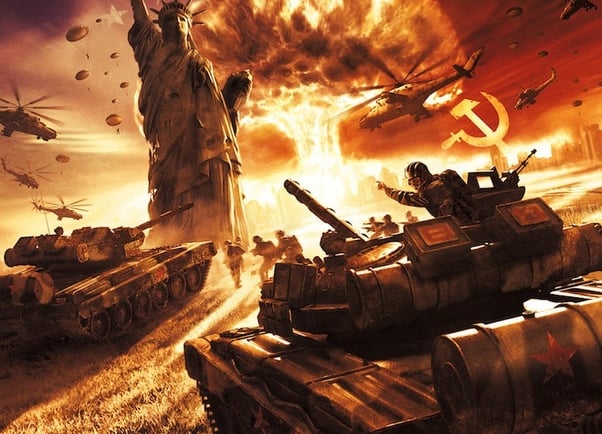Sponsor Late Night in the Midlands, Contact Us
On the Brink of ww3
On the Brink of ww3
Mike Vara
8/27/20242 min read


How Close Are We to World War III? Analyzing Current Global Tensions
As international relations become increasingly fraught, concerns about the possibility of World War III are gaining traction. The complex web of geopolitical rivalries, regional conflicts, and global power shifts has led to widespread speculation about the likelihood of a large-scale global conflict. While predictions vary, understanding the factors contributing to these concerns can provide insight into the current state of global security.
Current Geopolitical Landscape
The world today is marked by several high-stakes tensions that could potentially escalate into a broader conflict. Key areas of concern include:
U.S.-China Relations: The rivalry between the United States and China has intensified, with disputes over trade, technology, and military presence in the South China Sea. Both nations are investing heavily in their military capabilities and engaging in strategic posturing, raising fears about a potential clash.
Russia’s Aggression: Russia's actions in Ukraine and its increasing military activities in Eastern Europe have drawn global attention. The annexation of Crimea and ongoing support for separatists in Ukraine have strained relations with Western countries, leading to economic sanctions and heightened military readiness on both sides.
Middle Eastern Conflicts: The Middle East remains a volatile region with ongoing conflicts involving Iran, Israel, and various militant groups. Tensions over Iran’s nuclear program, proxy wars, and regional power struggles contribute to the risk of broader conflict involving global powers.
Nuclear Proliferation: The spread of nuclear technology and the development of advanced weaponry by various nations contribute to global insecurity. The potential for nuclear arms races and the possibility of rogue states acquiring nuclear capabilities are serious concerns.
Factors Mitigating the Risk
Despite these tensions, several factors mitigate the immediate risk of World War III:
Diplomatic Channels: International diplomacy and dialogue remain active. Organizations such as the United Nations and various multilateral forums provide platforms for conflict resolution and negotiation, reducing the likelihood of unchecked escalation.
Economic Interdependence: Globalization has created a complex web of economic interdependence. Major powers are economically linked, which serves as a deterrent against engaging in full-scale war that could have catastrophic economic consequences.
Military Deterrence: The concept of mutually assured destruction (MAD) and the presence of robust military deterrents among major powers act as a stabilizing factor. The devastating consequences of a full-scale war and nuclear conflict act as a significant deterrent.
The Role of Public Perception
Public perception plays a crucial role in shaping policy and international relations. Heightened awareness and concern about the potential for global conflict can influence political leaders to pursue more diplomatic and peaceful resolutions to disputes. Media coverage and public discourse on the risks of war can also impact how nations approach international negotiations and conflict management.
Conclusion
While the risk of World War III cannot be discounted entirely, several factors suggest that global leaders are actively working to prevent such a scenario. The combination of diplomatic efforts, economic ties, and military deterrents plays a crucial role in maintaining global stability. Nevertheless, vigilance and continued efforts in conflict resolution are essential to manage and mitigate the risks posed by current geopolitical tensions. As global dynamics evolve, the international community must remain engaged and proactive in addressing potential sources of conflict to ensure lasting peace and security.
MV
Broadcast
Tune in for engaging shows and discussions.
Connect
Join Our News Letter
803-766-1394
© 2026. All rights reserved. by Mike Vara

